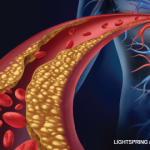 ACR Convergence 2021—A key challenge faced by rheumatologists is not only managing the primary manifestations of systemic autoimmune diseases, but also anticipating, preventing and treating the comorbidities that are often seen in these conditions. During the ACR Convergence 2021 Review Course, Joan Bathon, MD, professor of medicine and chief of the Division of Rheumatology, Columbia University Medical Center, New York, discussed the cardiovascular manifestations of autoimmune disease.
ACR Convergence 2021—A key challenge faced by rheumatologists is not only managing the primary manifestations of systemic autoimmune diseases, but also anticipating, preventing and treating the comorbidities that are often seen in these conditions. During the ACR Convergence 2021 Review Course, Joan Bathon, MD, professor of medicine and chief of the Division of Rheumatology, Columbia University Medical Center, New York, discussed the cardiovascular manifestations of autoimmune disease.
Rheumatic Disease & Cardiovascular Risk
Dr. Bathon began her lecture by noting several facts that many clinicians know all too well: Cardiovascular mortality is higher in patients with rheumatoid arthritis (RA) than in healthy, age-matched controls; clinical and subclinical cardiovascular disease is frequently seen in patients with RA, systemic lupus erythematosus and other rheumatic conditions; and patients with anti-neutrophil cytoplasmic antibody-associated vasculitis (AAV) have an increased incidence of cardiovascular events even when compared with patients with chronic kidney disease.
Dr. Bathon noted that more severe and active rheumatic disease may further be associated with the risk of cardiovascular disease. In a study of 603 patients with rheumatoid arthritis, Maradit-Kremers et al. found that, even after controlling for traditional cardiovascular risk factors and comorbidities, patients with erythrocyte sedimentation rates of ≥60 mm/hr, the presence of rheumatoid arthritis-associated vasculitis and the presence of rheumatoid arthritis-associated lung disease had significantly higher risk of cardiovascular death compared with patients with rheumatoid arthritis without these features.1
In a separate study, Solomon et al. showed that hazard ratios for cardiovascular events in patients with rheumatoid arthritis correlate with disease activity, with patients with high disease activity having the highest risk of cardiovascular events and those patients in clinical remission demonstrating the lowest risk of such events.2
Dr. Bathon said these and other studies raise several questions: Is vascular inflammation increased in patients with rheumatoid arthritis, and if so, does such inflammation predict progression of atherosclerosis and incidence of future cardiovascular events? Do disease-modifying anti-rheumatic drugs (DMARDs) reduce vascular inflammation, and, if that is true, is this the mechanism by which they (putatively) reduce cardiovascular events?
Anti-Inflammatory Therapy
On this note, Dr. Bathon referenced the CANTOS trial, which was the first randomized, controlled trial in the general population to provide proof of concept that anti-inflammatory therapy reduces cardiovascular event rates.3 In this study, Ridker et al. enrolled more than 10,000 patients with previous myocardial infarction (MI) and a high-sensitivity C-reactive protein level of ≥2 mg/L, and randomized patients to one of three doses of canakinumab, a therapeutic monoclonal antibody targeting interleukin-1β, or to placebo.


